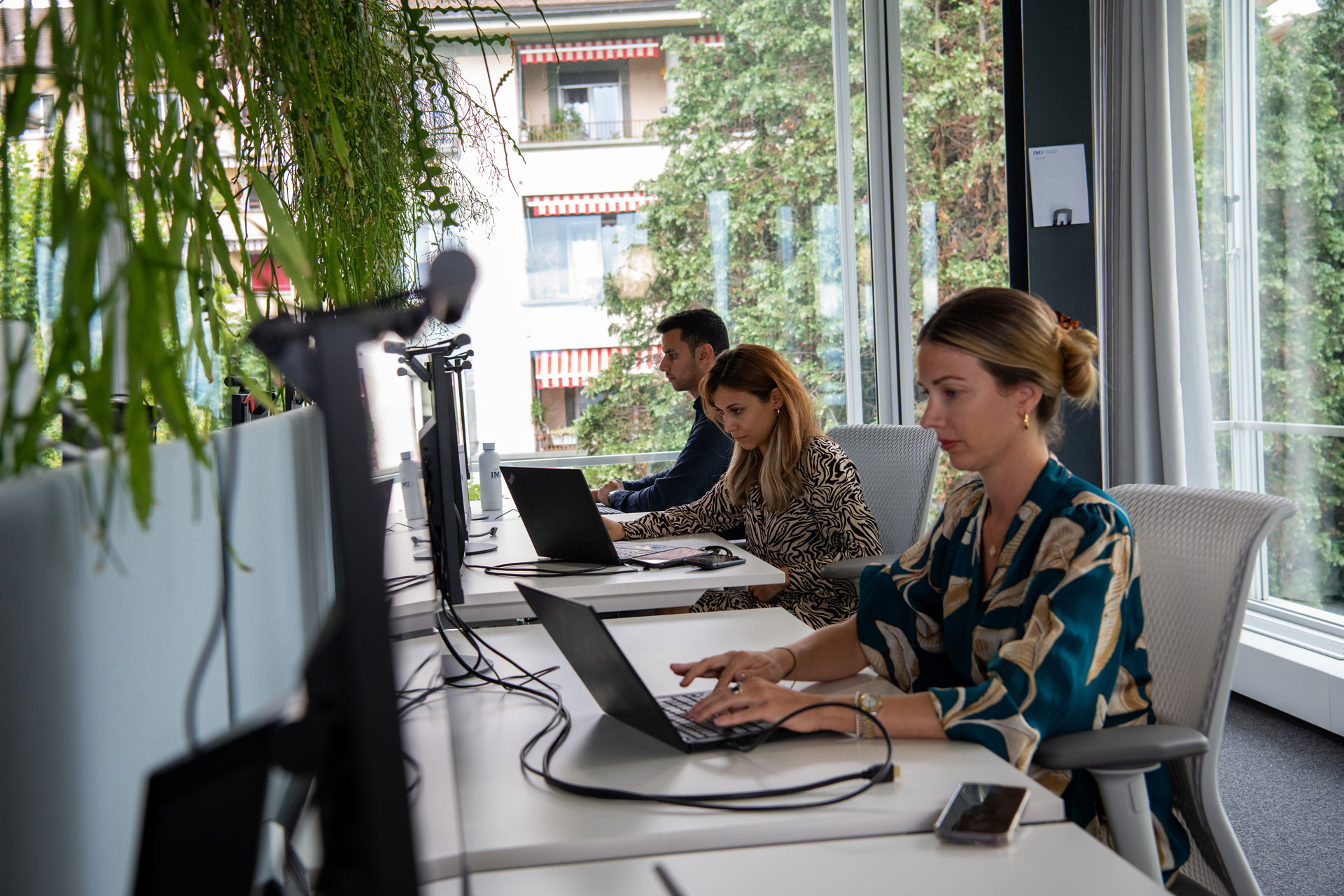IMD business school for management and leadership courses



Reducing waste and increasing recycling
As an academic institution, we provide educational services. The materials used to develop our activities are mostly renewable and non-hazardous manufactured goods. Our general activities do not generate toxic substances or hazardous waste. Our Campus Services team seeks to continually improve processes to inform decision-making on sustainability and reduce our impact on the environment. We are committed to reducing waste and increasing recycling where we can.
The materials we use on our campus include but are not limited to recycled paper, cardboard, newspapers, glass bottles, light bulbs, furniture, and personal protective equipment.
Our electronic equipment includes IT devices such as multifunction printers, desktop and laptop computers, and monitors.
We have an internal waste management system in place, which includes general waste segregation and recycling processes. Therefore, the waste generated in our offices is segregated into general waste and paper. We have also installed bins in strategic places on campus, reducing the number of individual waste bins next to office desks. A third-party provider collects and transports waste from campus.




At our campus restaurant, we separate organic household and vegetable waste from incinerable waste. This separation allows the local waste recycling company to recover, reprocess, and recycle the useful components to produce biogas and compost. The biogas produced is then added to the natural gas network, providing fuel solutions to the local community.
Several significant recycling initiatives were implemented during this period, which reduced the number of electronic items on campus. The successful transition to Zoom Cloud and softphones resulted in the decommissioning and recycling of 500 phones.
We upgraded some of our electronic systems during a renovation project of 32 study rooms. This resulted in old equipment, such as screens, printers, and PCs, being replaced with all-in-one, more energy-efficient touch displays. We also recycled over 3,500 kilograms of miscellaneous hardware during the period and sold a hundred electronic items.
Softphones reduce the need for desk phones, allowing users to make telephone calls over the Internet from a computer or smartphone.
Waste and recycling
Waste and recycling
Food waste reduced in 2023
Miscellaneous IT hardware recycled
Food waste reduced in 2023
Miscellaneous IT hardware recycled
Total amount of waste in 2023
Total amount of waste evolution